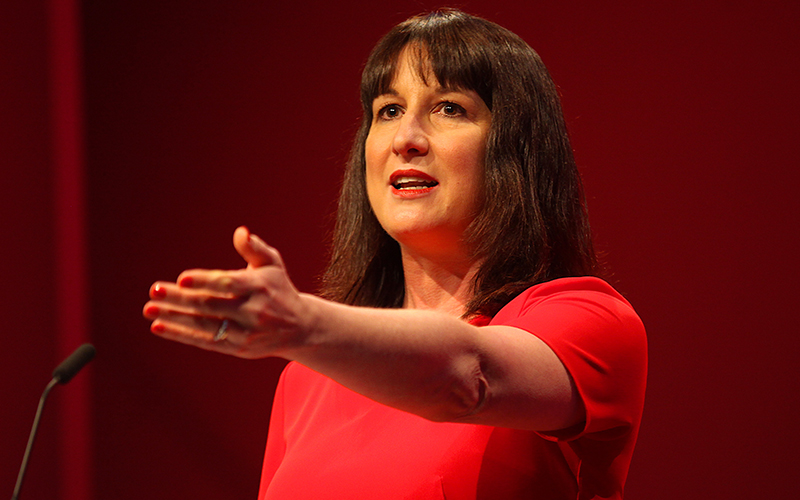
Rachel Reeves. Image © Rupert Rivett/Shutterstock
In its election manifesto, the Labour Party described its fiscal rules, which include a commitment to balance the national budget, as ‘non-negotiable’.
Labour promised it would cover all day-to-day spending with tax revenue, borrowing only to invest, and have debt fall as a share of the economy in five years’ time.
However researchers at the IFS said the “precise technical details” of the government’s fiscal rules have yet to be defined.
Researchers Isabel Stockton and Ben Zaranko said this could make a difference as to how much ‘fiscal headroom’ – the amount the government can use to increase spending or cut taxes – exists under the rule.
According to the researchers, switching to the ‘headline’ measure of public sector net debt rather than the measure of ‘underlying debt’ would add billions of additional borrowing potential while still meeting Labour’s fiscal rules.
If the previous government had used headline debt rather than underlying, £16bn of additional borrowing could have been assured to its headroom in March 2024, the IFS said.
The chancellor, who is reportedly considering this change, would then be able to meet the calls for additional public spending while fulfilling her promises not to raise income tax, National Insurance or VAT.
However the IFS said the case for making the switch is “weak” as changing the definition does not change the “fiscal reality” as “whatever the measure of debt, additional borrowing is additional borrowing.”
Ben Zaranko, senior research economist at the IFS, said: “Tweaking the definition of debt, to allow for additional borrowing without breaching the letter of the fiscal rules, may well be an attractive option for the new chancellor.
“Such a change would be fairly modest and might be sufficiently far into the fiscal weeds to avoid any sort of adverse reaction from financial markets. But additional borrowing is still additional borrowing.
“If the government wants to borrow and invest more, there is a coherent and principled case to be made for doing so. Ideally, we would hear that case and debate its merits, rather than get bogged down in technical debt definitions and an unhelpful discussion about so-called fiscal headroom.”










